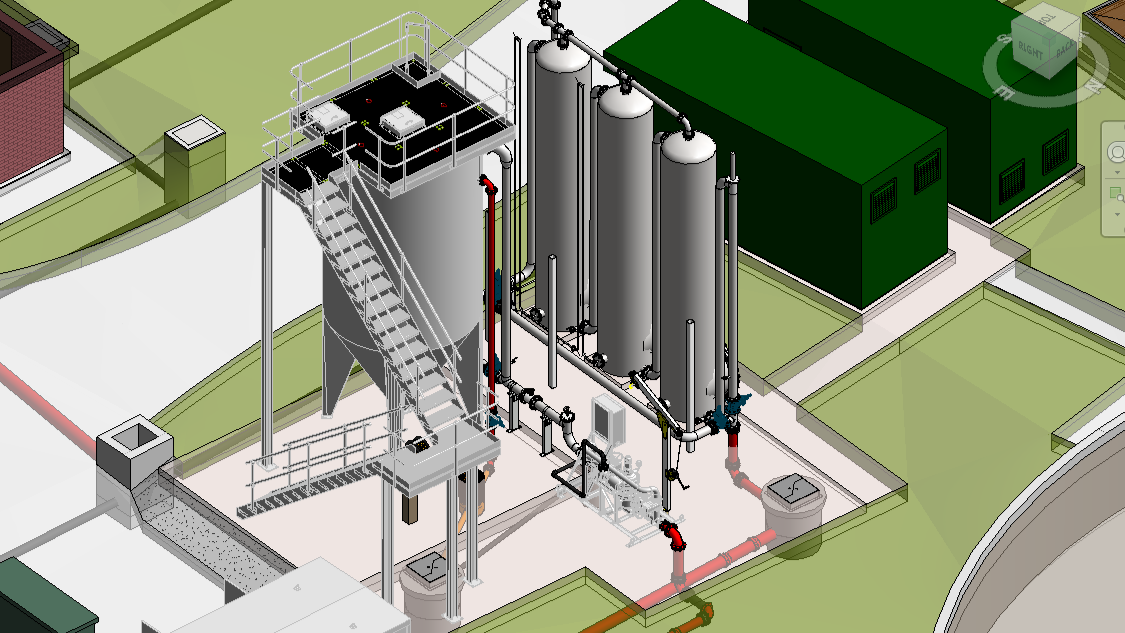Over the next decade tackling micropollutants will become a major issue for the UK water industry. Last year UK Water Industry Research published 13 reports deepening knowledge of the scale and extent of the issue in the UK’s waterways. The EU’s revised Urban Wastewater Treatment Directive, which the UK still adheres to, is in the process of strengthening provisions that require both polluters and water companies to monitor and remove micropollutants.
While the news has been dominated by the visible sewage in our rivers and bathing water, micropollutants are another serious, but hidden issue. Take a glass of water from these rivers and you will find traces of everything from prescription medicine to ‘forever chemicals’ (PFAs) from industrial run off. Though these may present in low concentrations, the cocktail effect produced by a combination of different micropollutants can pose a greater toxicity. There is a growing body of research that shows the bioaccumulation of this mixture of micropollutants can be harmful to both humans and the environment over a prolonged period.
With major investment in our water infrastructure due in AMP8, there is an opportunity for water companies – who are not responsible for the micropollutants, but who have a role to play in removing them – to tackle the issue head on. For many companies, much of this funding is already going into updating wastewater treatment systems in order to comply with the Environment Act. As part of this round of funding, water companies in the UK are already implementing pilot projects to tackle micropollutants.
Wastewater treatment plants at the Frankton, Itchen Bank and Ludlow are using ozone technology to remove micropollutants such as diclofenac, carbamazepine, benzotriazole, propranolol and ibuprofen. Our research, as well as data from operational plants in central Europe, shows that ozone – in the correct dose – is capable of removing an average of 80% or more of these micropollutants from wastewater.
This 80% average removal target is part of Swiss regulation and is also proposed for the revised European Urban Wastewater Directive. Higher removal rates can be achieved by increasing the ozone dose or combining the oxidative treatment step (ozone) with an adsorptive one such as granular activated carbon (GAC) which will remove over 90% of micropollutants, alongside the transformation products of the oxidation process.
Ozone is both highly effective and environmentally sustainable. It provides a broad and versatile spectrum of activity that can effectively target a wide variety of micropollutants, including pharmaceuticals, personal care products, pesticides, and industrial chemicals, as well as tackling the issue of antimicrobial resistance. Ozone also reacts quickly with micropollutants, leading to rapid degradation removal from wastewater. This allows for efficient treatment processes and shorter contact times compared to alternative methods.
The trial project in Severn Trent, which is part of their ‘Green Recovery – Bathing Rivers’ initative, is based on the success of the first European micropollutant removal plant in Neugut, Switzerland. The plant has been operational since 2014, it has since become a reference standard for the country to implement its micropollutant removal plan by 2035. Feedback from the Neugut WWTP has led to the design of new, more efficient systems for ozone dose control and maintenance of the ozonation stage. Further optimizations are still in progress.
The Severn Trent experience is likely to play a similar role in the UK, with the Environment Agency using and analysing the sampling results from the Severn Trent sites, and other pilot sites to formulate new micropollutant removal regulations.
The trial pilot plants being installed at Severn Trent will operate as a ‘plug and play’ type installation. This concept has been specifically designed to allow engineers to evaluate and select the optimal treatment solutions depending on type of wastewater being discharged. Laboratory testing on the samples will provide a technical and economical assessment that will optimise the eventual full-scale installation.
The collaboration between Curio, Veolia Water Technologies & Solutions, and Severn Trent, alongside innovative technology solutions, demonstrates a proactive approach to tackling what is very likely to become an industry-wider priority. By investing in pilot projects like the one at Severn Trent, tailored solutions at a range of sites across the UK can be developed, optimised, and eventually scaled up, minimising both capital and operational costs while complying with future legislation that tackles the full range of micropollutants.
As the UK water industry embraces these advancements, it sets a precedent for sustainable water management practices. With concerted efforts and continued collaboration, the vision of clean and safe waterways free from micropollutants can become a reality, safeguarding this precious resource upon which we all depend for future generations.



